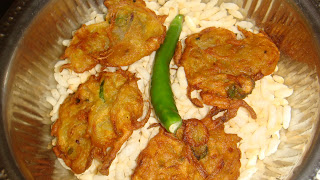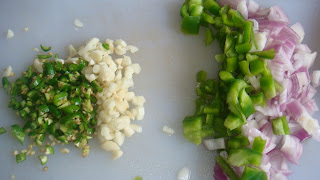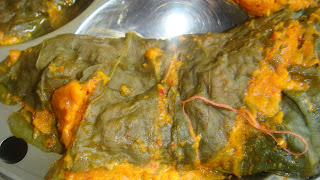I was proud of the speed at which I had mastered Bengali. My ears were (and are) all open to grasp any new word that was not in my Vocabulary yet. I had a colleague, Nilanjanda – he was the master of Bengali proverbs. He would mutter a quote apt for any situation, and immediately I would start bugging him to know what it meant and in what context it can be used. I would then be on the lookout for the right situation at home to declare the newly learnt proverb. And everybody at home would be taken aback to hear the proverb coming from ME! All thanks to Niluda for strengthening my Bangla literally!
These are some I still remember:
‘Bel paakle kaaker ki’
‘Baar kheye khudiram hoye jaoa’
‘Gache kathaal gope tel’
‘Joto dosh Nanda ghosh’
While I took pride at my newly honed language skills, I was in for a shock. Those days we were looking for a cook at home coz kids were barely few months old and I was going to join back work soon. Requirement was spread by word of mouth through maids. And anything that goes into one of their ears spreads like forest fire. They have such high bandwidth and network speed. Bang came a lady to check about the vacancy. Ma handled the interview and final negotiation. Compensation was bargained and settled at a ‘Not yours - not mine’ amount. The lady had a demand apart from the salary offered. She said that we must offer her with ‘Jal Khabar’ daily evening. And there you are! Me being the silent spectator scratched my head as I didn’t know what that meant. Jal means water and Khabar means Food. Now what on earth does ‘Water Food’ mean??? Later on, I found out that that it’s an expression that means the light (?) snacks that we have along with evening tea. Hmmm, learning never ends…
Piyaji or Onion Fritters are my favourite Water Food! (You know what I mean) Few months back when we were staying along Bhabi, Kakima and Kaku (Bhabi’s parents) had also come down to stay with us. We had Piyaji on the platter and Kaku declared with contempt ‘Tomra Piyaji banaate paro na!’ (You guys are incapable of making Piyaji) He announced that he will make Piyaji one day and we were all to wait and watch. But there was a condition that nobody had to enter the kitchen while he was at work! Hmmm, we were all curious now as to what was that secret ingredient that he would add to make the so-called perfect Piyajis. On pestering him we were allowed entry into the kitchen and I witnessed the entire process. He did everything the way we would do. But the patience and passion with which he fried those beauties was unmatchable. Abbas and I are eagerly waiting for Kaku and Kakima’s next visit to hog on all the delicacies Kakima prepares, along with Kaku’s Piyaji…. (Oh have heard about Kaku’s famous Beguni as well which is long due)
Ingredients:
Onions – 3, medium sized, very finely chopped (The finer the better)
Green chillies – 2, finely chopped
Gram flour – ¾ cup or as required
Salt – to taste
Baking soda – a pinch
Nigella seeds – ¼ tsp
Water – as required
Oil – for deep frying
Method:
- Mix all the ingredients expect oil.
- Heat oil in a deep bottomed vessel.
- Make thin patties out of the onion mixture on your palm and slowly slip it into hot oil. Fry on both side till they turn light brown.
- Remove from oil and place on absorbent papers to absorb excess oil.
Note:
- Can be served with evening tea.
- I like it with Puffed rice and a dash of mustard oil.
- Bengalis like to have it for brunch along with left over rice soaked in lots of water. They call it ‘Paanta Bhaat’.
- We also like to have it with Rice and Dal as a side


















































